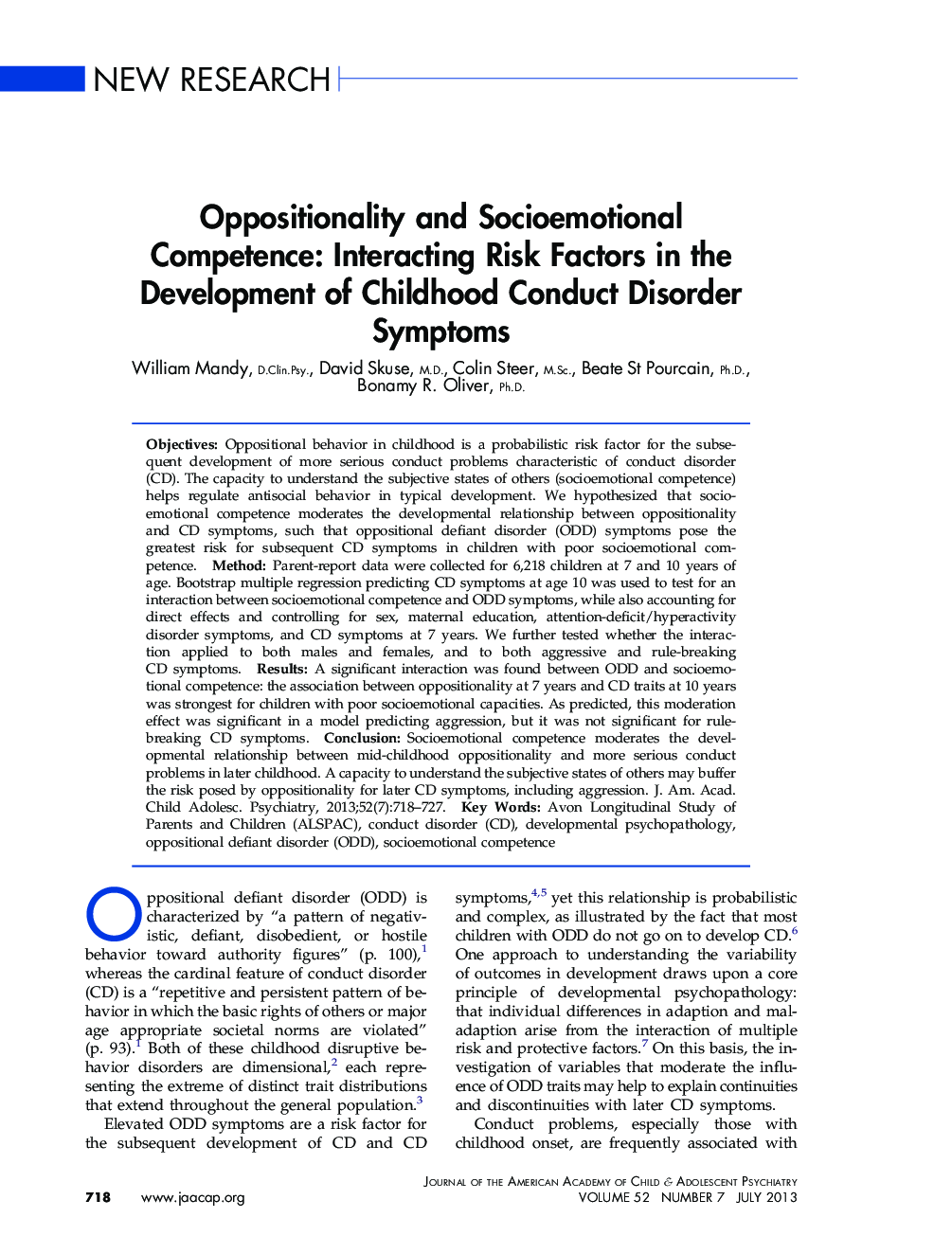| Article ID | Journal | Published Year | Pages | File Type |
|---|---|---|---|---|
| 325303 | Journal of the American Academy of Child & Adolescent Psychiatry | 2013 | 10 Pages |
ObjectivesOppositional behavior in childhood is a probabilistic risk factor for the subsequent development of more serious conduct problems characteristic of conduct disorder (CD). The capacity to understand the subjective states of others (socioemotional competence) helps regulate antisocial behavior in typical development. We hypothesized that socioemotional competence moderates the developmental relationship between oppositionality and CD symptoms, such that oppositional defiant disorder (ODD) symptoms pose the greatest risk for subsequent CD symptoms in children with poor socioemotional competence.MethodParent-report data were collected for 6,218 children at 7 and 10 years of age. Bootstrap multiple regression predicting CD symptoms at age 10 was used to test for an interaction between socioemotional competence and ODD symptoms, while also accounting for direct effects and controlling for sex, maternal education, attention-deficit/hyperactivity disorder symptoms, and CD symptoms at 7 years. We further tested whether the interaction applied to both males and females, and to both aggressive and rule-breaking CD symptoms.ResultsA significant interaction was found between ODD and socioemotional competence: the association between oppositionality at 7 years and CD traits at 10 years was strongest for children with poor socioemotional capacities. As predicted, this moderation effect was significant in a model predicting aggression, but it was not significant for rule-breaking CD symptoms.ConclusionSocioemotional competence moderates the developmental relationship between mid-childhood oppositionality and more serious conduct problems in later childhood. A capacity to understand the subjective states of others may buffer the risk posed by oppositionality for later CD symptoms, including aggression.
